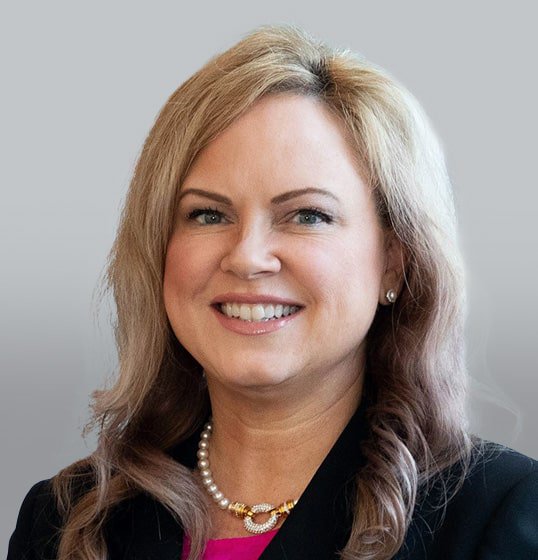In today’s industry, keeping pace with changing customer expectations and an ever-evolving industry can be challenging. Fortunately, this month’s Western Region Captive Insurance Conference provided an opportunity to collect expert insights that can empower carriers and captives to secure sustainable success. Following the conference, we are sharing what we hope is a lasting guide to the claims management best practices not to forget and the invaluable questions and answers shared to help insurance providers stay at the forefront of their field. Here, we also dive into some of the questions posed to the expert panel during the discussion.
In the fiercely competitive marketplace of carriers and captives, establishing a competitive edge hinges on solidifying service consistency and operational efficiencies while delivering superior outcomes for clients. To achieve this, maintaining claims management best practices is critical to driving elevated performance and claims outcomes. Here are the three best practice areas carriers and captives must not overlook in today’s industry:
Claims reporting plays a pivotal role in an efficient claims management process, enabling carriers and captives to promptly respond as soon as a loss is identified. Establishing an internal standard for reporting is key to capturing the necessary information to address claims in a timely manner. This may include details such as the incident’s description, timing, location, involved parties, witnesses, damage, and injuries. In doing so, claims handlers are empowered to act quickly to develop a resolution plan. By emphasizing the significance of efficient claims reporting and ensuring that everyone in the organization understands the process, insurance providers can streamline their claims management approach and provide effective support to policyholders.
It is essential to update documentation to ensure the claims resolution team’s information is current and accessible to all people involved in the claims reporting process for the insured. For example, it can be helpful to keep a claims team listing on a shared platform. It is also necessary to ensure that other parties, such as carrier or broker oversight personnel, have the current contact information listed in this documentation. We have many new people in the industry, including those who have changed jobs in the last couple of years. Each team member should be trained in how to accurately report claims because delays in reporting will only increase the total costs.
Successfully navigating the various complexities of the claims process is essential to drive successful claims outcomes. At every stage of the claims process, active engagement and communication between the claimant and insurance provider are critical to achieve superior customer service. Once the claim is reported, internal claims leaders should remain aware of the claim’s progress and status, and the insured should stay engaged by paying close attention to the processes and outcomes.
For example, when handling litigation management, establishing clear guidelines is central to the effective handling of legal matters to mitigate the risk of exorbitant verdicts and related social inflation. This may include reviewing legal bills, considering the budget, and aligning with the defense or settlement strategies. For workers’ compensation claims, understanding the available managed care services can significantly impact medical management and facilitate the effective treatment of injured workers. Examples of managed care services may include qualified PPO networks and pharmacy benefit management as well as the reviewing of bills. Across these examples, clear claims processes are essential for carriers and captives to deliver superior services to policyholders in all circumstances.
Engaging a strategic claims partner is important to set the foundations for long-term success and growth for captive owners. Furthermore, when adding specialty lines to a captive, it becomes even more important to have claim professionals who are experts in these lines handle the claims. From reporting capabilities to supporting board meetings and business strategies to fostering operational excellence and empowering internal resources with claims workshops and specialist claims abilities, a strategic partner is instrumental in guiding businesses through the unknown and establishing the tools for success from within.
As well as tackling the best practice pillars of claims management, the Western Region Captive Insurance Conference offered a platform for captive stakeholders to ask targeted questions to elevate their success. Read on to find out what other carriers and captives are seeking support on to stay ahead of the competition.
Below are a few examples of questions from the audience and our answers.
Q: Is it reasonable for me to be engaged with the third-party administrator (TPA) if I am contracted to help oversee claims?
A: Yes, it is reasonable, and we expect that all stakeholders work cooperatively together. To reduce any friction or issues, specific handling instructions for the captive should be provided, including contact information and details on all involved partners for clarity.
Q: [Following a session covering claim vs. incident, also known as “near miss or record-only”] Some tangible losses seem pretty clear cut, but what about situations such as cyber matters?
A. The captive owner should call upon their claims team and legal department to discuss the nature of the situation in detail and determine the next steps. When it comes to cyber claims, it is ideal to have a plan and partners in place who possess the expertise to proactively advise before any issues surface.
Q: What are critical dates in the captive lifecycle from a claims perspective?
A: Certain dates should be noted as far out as six months in advance, including dates that precede claim reviews, captive board meetings, and renewals. Additionally, it is important to understand your claims’ financial positions and statuses. Your TPA can guide you in this planning by providing loss runs, lag reports, and other analytics to inform your decisions.
Captives require significant time, effort, and investment to be successful. Additionally, having the right partners in place that can provide the collaboration and resources necessary to support your goals as they change can help protect your balance sheet.
Contact me today to learn how a strategic partnership could help you achieve a competitive advantage in today’s industry and cement industry-standard claims processes to drive your business forward.






